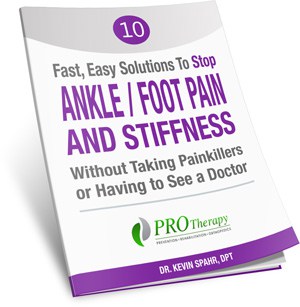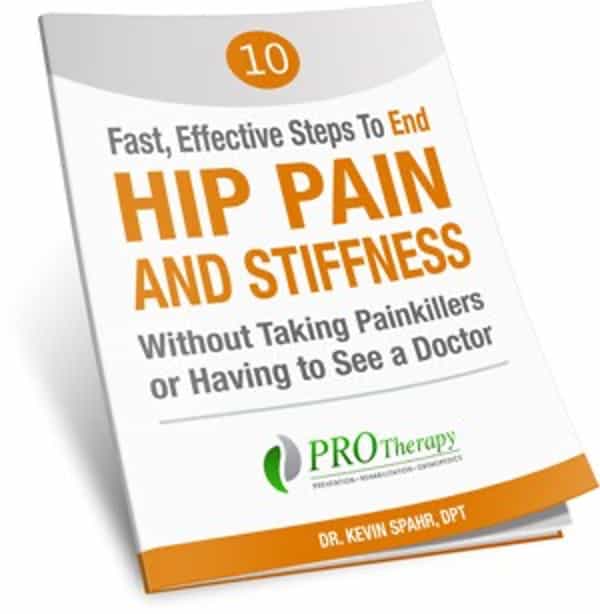Every year, in the US, there are roughly 450,000 total hip replacements performed. With recent advancements in the medical field, hip replacements have become, in most instances, an in-and-out procedure all in one day.
Patients are often told by their surgeons: “just walk on the new hip and you will feel better in a few weeks.”
However, that’s not always what happens. More often than not, these individuals will walk and may feel improvement initially but always end up having more pain a few months down the road. So what happened? Why isn’t it better?
If this sounds familiar to you or you are scheduled for an upcoming hip replacement, in this blog we will answer these questions and how physical therapy is the key to helping your body heal and adapt to your new hip in order to get you back into the hobbies you love to do.
Why Do People Still Have Hip Pain Months After a Hip Replacement?
Reason One: Misinformation/withheld information
The main reason people still have hip pain months after a hip replacement is primarily from misinformation or withheld information. A lot of people who have hip replacement surgery (or any surgery in general) are told why they are having the surgery but not what to expect afterward.
They know that their hip joint isn’t functioning right anymore and that they need a new hip but aren’t told that you should still expect pain for the first few weeks to a month afterward. When people are told they will be going home the same day after surgery, they expect that they will have minimal to no pain but that is often not the case.
If you have had a hip replacement or are scheduled to have one, you need to prepare to have pain as this is an invasive procedure.
How Physical Therapy Helps
Meeting with or talking with a physical therapist before you have surgery can be helpful in setting up realistic expectations for your surgery. They will take into account your activity level, type of hip replacement, age, and past medical history in order to give you a better understanding of what to expect.
Likewise, after you have had the surgery, your physical therapist will be able to give you specific exercises and treatments to help manage the pain in those first few weeks after the surgery.
Reason Two: They’re told to “just walk it off”
Another reason people still have pain is because their surgeons tell them to JUST walk on the hip to build strength and don’t suggest physical therapy post-surgery. This is partially true – walking can help build strength and is good for the hip, but due to the pain and a brand new hip, people will need to build strength and relearn to walk through more dedicated treatement.
If you aren’t walking correctly due to the pain, this can lead to further complications with the healing of the new hip joint and tissue surrounding the hip.
Over time this will only compound and lead to more pain and discomfort.
How Physical Therapy Helps
Immediately after surgery, regular sessions with a physical therapist will be able to help improve your strength and walking form. With any surgery, surrounding muscles will weaken and require strengthening. A physical therapist will be able to assess where your limitations are and will be able to prescribe specific exercises as well as leverage manual-based therapy to safely strengthen muscles around the hip to provide support to your new hip.
On top of assessing strength limitations, your physical therapist will be able to assess your walking form. With a set of eyes that are trained to pick up poor movement with walking, the physical therapist will help cue you to improve your form with walking.
The combination of these strengthening exercises and cues to improve form will change as you get further out from the surgery and as you build strength. Your therapist will be able to give you safe progression of exercises and cues as you continue on your journey with your new hip. This will allow for smoother and less painful walking now and prevent pain with walking in the years to come.
Related Content:
Why Physical Therapy Is Your Ticket To A Pain-Free Life
10 Fast, Effective Steps to End Hip Pain and Stiffness
Reason Three: The body isn’t prepared for healing before the surgery
The final aspect that can lead to pain that lasts longer after hip surgery is no preparation of the body before surgery. A lot of times, you may schedule your hip surgery but the earliest you can get in is months down the road. Between the time you schedule the surgery and the actual surgery months down the road, most individuals sit with the pain and do nothing while waiting for that surgery date.
However, strengthening before surgery can improve outcomes and allow for faster recoveries after the surgery.
How Physical Therapy Helps
Meeting with a physical therapist regularly before surgery can help you build strength in preparation for the surgery. They will assess your limitations again and provide treatment to not only improve your strength, but also your motion and pain levels. In some instances, we have had patients even cancel their surgery due to the treatment they received from physical therapy. In other instances, our patients have gone into surgery with more motion and strength and came out of the surgery with less discomfort. They also required less treatment after the surgery.
If you have had surgery or are scheduled for surgery to replace your hip, physical therapy should play a major role in helping you optimize your treatment to either prevent the surgery before or to improve your outcomes after surgery.
Pre- and Post- Surgical Physical Therapy With PRO Therapy
At PRO Therapy you will always experience precise, caring, and one on one care from a Licensed Doctor of Physical Therapy – no tech aides, no rehab assistants, no personal trainers – to help you decrease pain by the time you walk out the door of your first session and create a plan to adhere to going forward.
Our physical therapists at PRO Therapy understand what steps need to be taken after each injury and surgical procedure to maximize your road to recovery. We will continuously guide you and provide the best recommendations for each phase of your recovery to ensure the best outcomes. Having a PRO Therapy physical therapist with you on your journey to recovery (surgery or not!) is the first best step you can take!
Read Now: Why Our Physical Therapy Team Are Amazing (And What They Have Taught Me)
Are you ready to make physical therapy work for you? Give us a call! We offer complimentary phone and in-person consultations. We aim to meet our patients wherever they are in their journey and answer all questions we can to ensure a smooth experience at PRO Therapy. We want to help you make the best decision for you!
- Sports Physical Therapy – Preventing Overuse Injuries in Younger Athletes - March 3, 2025
- Holistic Approaches to Chronic Pain Management: A Physical Therapy Perspective - February 25, 2025
- Understanding Shockwave Treatment – Advantages of Stemwave Technology - February 13, 2025










